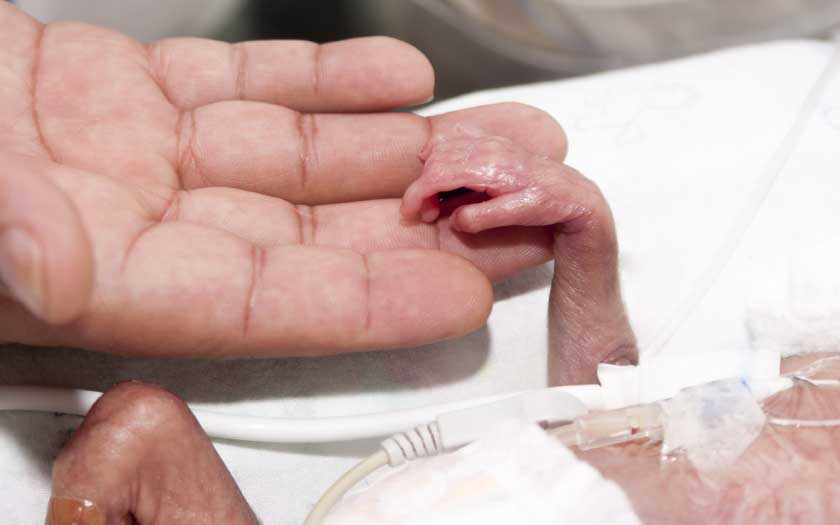No parent wishes for their child to be born premature, but these things happen. There are a number of reasons behind it, and with modern medical intervention, chances of premature babies growing up normal and healthy are high in this modern era. BabyTalk had the opportunity to interview Dr. Vinodhini Bhaskaran, Obstetrics & Gynaegology Specialist from Sri Kota Specialist Medical Centre on this delicate matter, and here’s what she had to share.
What does the term premature baby mean, and what are the different types of premature births?
A: A premature baby is a baby that is born at least three weeks before the estimated due date, such as before the start of the 37th week of pregnancy.
Depending on how early the baby is born, he or she may be:
- Born between 34 and 36 completed weeks of pregnancy (late preterm)
- Born between 32 and 34 weeks of pregnancy (moderate preterm)
- Born at less than 32 weeks of pregnancy (very preterm)
- Born at or before 25 weeks of pregnancy (extremely preterm)
What causes a baby to be born prematurely?
A: Most often, the cause is not known. However, there are certain risk factors and they include:
- Having a previous premature birth
- Being pregnant with twins, triplets or other multiples
- An interval of fewer than six months between pregnancies
- Conceiving through assisted reproductive techniques
- Problems with the uterus, cervix or placenta
- Smoking cigarettes or using illicit drugs
- Certain infections, particularly of the lower genital tract
- Chronic health conditions, such as high blood pressure and diabetes
- Being underweight or overweight before pregnancy
- Experiencing stressful life events, such as the death of a loved one or domestic violence
- Having experienced multiple miscarriages or abortions
- Physical injury or trauma
What do premature babies look like as compared to those born at 9 months gestation?
A: How premature babies look will depend on how early they were born. A near term baby will probably look like a smaller sized full-term baby, but an extremely premature baby – for example, a baby born at 24 weeks – will be tiny and fragile looking and might fit snugly into your hand.
How much do premature babies weigh?
A: This too depends on the gestational age and usually, they can be anywhere between 500gms to 2.5 kilogrammes.
What short term health risks do premature babies face?
- Breathing problems as the lungs are not mature
- Heart problems.
- Brain problems like learning and cognitive difficulties
- Temperature control problems
- Gastrointestinal problems
- Blood problems like jaundice and anemia
- Metabolic problems like hypoglycemia
- Immune system problems due to the underdeveloped immune system with increased risk of infection and sepsis
What are long term health risks premature babies potentially face?
- Cerebral palsy due to impaired blood flow to the immature brain
- Impaired learning
- Vision problems due to retinopathy of prematurity (ROP) which can impair vision and cause blindness if not treated adequately.
- Hearing problems- increased risk of some degree of hearing loss.
- Dental problems like delayed tooth eruption, discoloration, and improperly aligned teeth.
- Behavioral, psychological problems, and developmental delays.
- Chronic health issues including Infections, asthma, and feeding problems are more likely to develop or persist, compared to full-term infants.
- Increased risk of sudden infant death syndrome (SIDS).
How can preterm births be prevented?
- Plan and prepare for your pregnancy. Start taking folic acid when you are planning for pregnancy and place priority on your ideal weight.
- Quit smoking
- Avoid alcohol and substance abuse
- Go to your first prenatal care checkup as soon as you’re pregnant
- Attend all your prenatal care checkups to make sure you and your baby are healthy.
- Chronic health conditions, like high blood pressure, diabetes, depression, and thyroid problems should be adequately treated. Take your medication regularly as advised.
- Protect yourself from infections by taking the advised vaccines, practicing good hand hygiene, proper sanitation and avoiding raw food like meat, sushi, etc
- Manage your stress levels
- Eat lots of healthy foods like fresh fruits and vegetables.
- Do some light exercise every day.
- Wait at least 18 months before getting pregnant/giving birth again.
- You may be at increased risk and require special care if you’re older than 35 or you’ve had a miscarriage or stillbirth or previous preterm birth.
Q & A with Dr. Vinodhini Bhaskaran,
Obstetrics & Gynaegology Specialist,
Sri Kota Specialist Medical Centre



